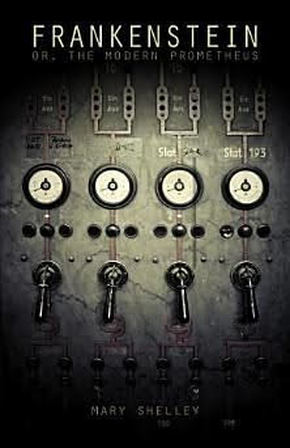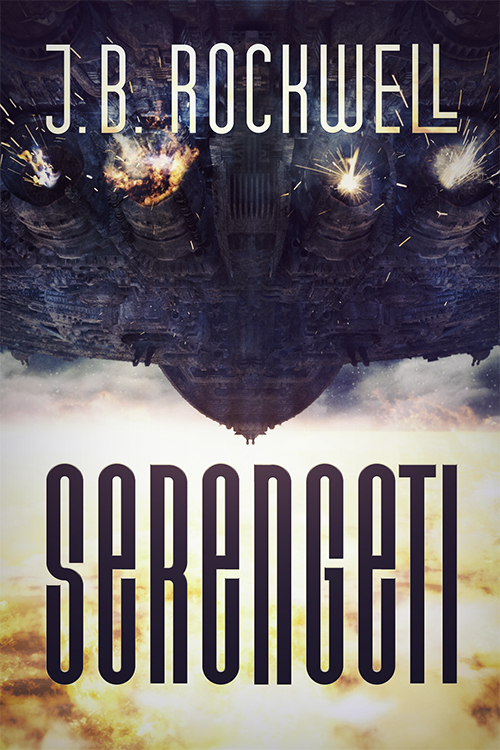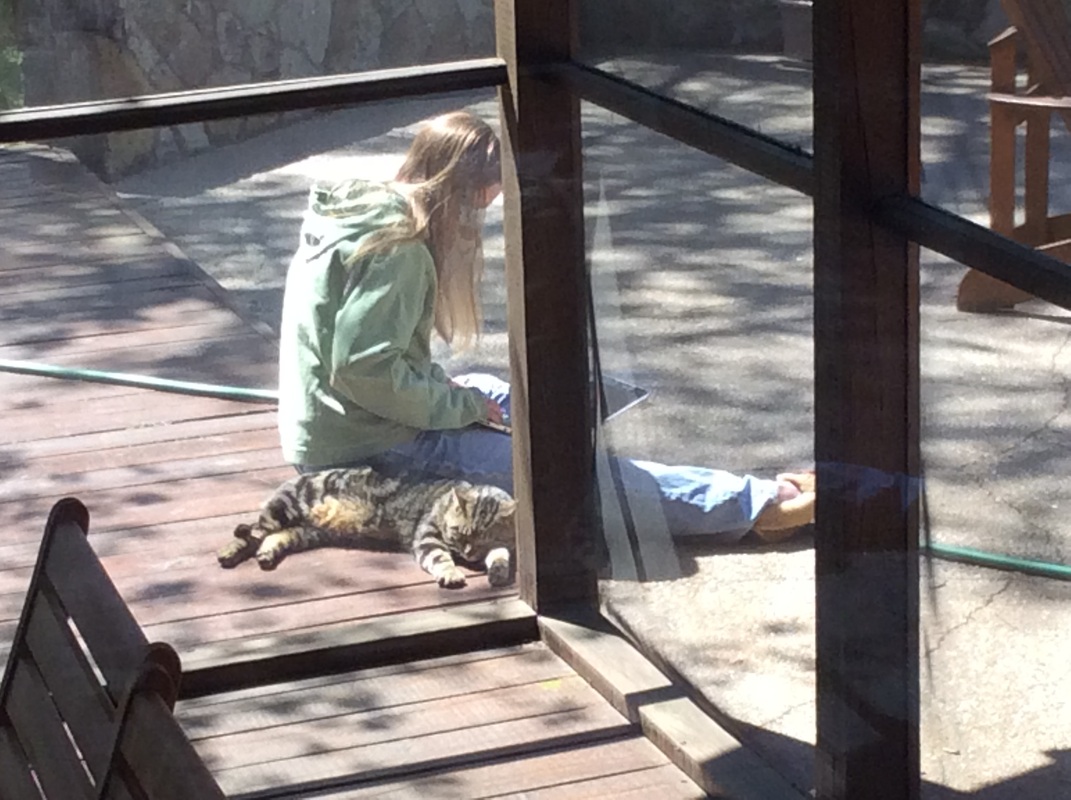| OK, so you’re probably looking at the title of this post and scratching your head. How can a sci-fi story about a wrecked AI warship possibly have anything in common with one of the most famous horror stories of all time? Good question. I didn’t get it at first, either. But a passing comment from a reader about the similarities between SERENGETI and Mary Shelley’s FRANKENSTEIN got me thinking. A little reading and a little research, and I started seeing the similarities, too. Keep reading. I’ll step you through my thought process. There’s a comment box at the end where you can let me know what you think… Disclaimer: I am in no way comparing myself, my writing, or the quality of my work to Mary Shelley. I’m proud of my little book, but not arrogant. Also, I’ve tried to keep this as spoiler free as possible, but if you haven’t read SERENGETI yet, proceed with caution! |
The Ghost in the Machine
Serengeti drifted in darkness…Time had no meaning in that in-between space…but she never stopped being Serengeti. Never lost that sense of being Valkyrie and not just some broken down ship.
— Excerpt from SERENGETI
Boom! Didn’t see that coming, now, did you?
Granted, Franky’s creepiness is organic—a jump-started corpse brain, stuffed into a stitched-together vessel, made of dead body parts—not crystal matrix and composite metal like Serengeti. Organic or not, it’s still artificial. A dead thing reanimated, given life through a rather…vague and ambiguous process, involving both alchemy and chemistry.
I began the creation of a human being…for the sole purpose of infusing life into an inanimate body…but now that I had finished, the beauty of the dream vanished, and breathless horror and disgust filled my heart…I beheld the wretch--the miserable monster whom I had created…the demoniacal corpse to which I had so miserably given life…
— Excerpt from FRANKENSTEIN
Fast forward several hundred years to Serengeti’s timeline and nothing’s changed. Human engineers create super-powered brains and load them into heavily armed warship chassis. And yet they still view them as inferior: creations, not living beings.
AI—artificial intelligence, all mind, no soul. The designers insisted power, function didn’t equate to life. But Serengeti disagreed. I think. I eat. I touch and see. Tell me I’m not alive. Tell me just because I’m AI I don’t have a soul.
Not life as biology defined it maybe, but AI life was every bit as pure and true as the frozen lives sleeping inside Cryo. — Excerpt from SERENGETI
...humans still didn’t quite trust AIs. Funny, considering human engineers designed every last one of them, making them stronger, more capable with each generation. Humans built AIs and wrapped them inside armored shells they launched into the stars, but they still wanted human crews on board those space-faring ships. Human minds and human judgment as a counter—or perhaps a foil—to ship’s intelligence. — Excerpt from SERENGETI
This brings me to the next part of this discussion: a more…intimate analysis. This is a more compelling consideration of SERENGETI in context with FRANKENSTEIN.
The Dreaming Mothers
…my dreams were all my own; I accounted for them to nobody; they were my refuge when annoyed—my dearest pleasure when free. — Excerpt from Mary Shelley’s Introduction to 1831 edition of FRANKENSTEIN
So, Mary Shelley wrote a ghost story about a reanimated corpse—OK, technically several corpses, since Victor Frankenstein used parts harvested from multiple dead bodies to create his creature—while pregnant and mourning the loss of a child.
That’s seriously creepy. So creepy, in fact, that it haunted her dreams.
19 March 1815 Dream that my little baby came to life again—that it had only been cold & that we rubbed it before the fire & it lived.—Excerpt from Mary Shelley’s Journal 1814-1844 vol. 2
True. But consider Serengeti's relationship with her crew: The loyal little robots fixing her as best they can, harvesting parts from their own bodies--another ironic nod to Frankenstein's monster--to keep Serengeti alive; Henricksen, Finlay, and the other humans depending on her to protect them. Consider that this advanced artificial intelligence learns to dream, and feel, and experience emotions develops a fondness for the fragile human life forms inside her. This is a protectiveness every bit as real as that of any biological mother.
Cryo hadn’t gone anywhere, it was right here where they’d left it, squatting inside her decimated innards like some oversized egg, waiting patiently to be born.--Excerpt from SERENGETI
She tried to grab hold of them but the dream trickled away from her, robbing her of her crew, taking the blood and smoke, the broken robots and burnt corpses with it, leaving Serengeti alone once more.
--Excerpt from SERENGETI
And now, once again, I bid my hideous progeny go forth and prosper, I have an affection for it, for it was the offspring of happy days.--Excerpt from Mary Shelley’s Introduction to 1831 edition of FRANKENSTEIN
That’s how they came to Cryo—laughing, not crying, not trundling in silence like the sad little robots that left Engineering. And that’s how Serengeti wanted it, if this was truly to be the end. That their last memories be joyous ones before they slipped into the dark.--Excerpt from SERENGETI
Question is: What do you think? Drop me a comment. I’m really interested to hear what you have to say…



 RSS Feed
RSS Feed